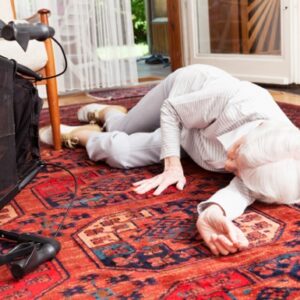our response to COVID-19
Blog
Helping Your Loved One Cope with Springtime Allergies
Nearly 55 percent of the population of the United States suffers from some kind of allergy. For a large percentage of these people, those allergies are seasonal. Seasonal allergies are reactions caused by plant matter such as pollen, mold, or grass. Often referred to as hay fever, these allergies show symptoms called rhinitis. These symptoms can include congestion, sneezing, watery…
Read MoreYour Diabetes Guide – Definition, Types, and Causes
What Is Diabetes? Diabetes is a disease that restricts the body from producing insulin or breaking down sugars properly. Because of this, those with diabetes suffer from high blood sugar and the many symptoms brought about by it. Unfortunately, both type 1 and type 2 diabetes are chronic conditions that will need to be managed carefully to prevent severe pain…
Read MoreNutrition for Older Men
The Difference Diet Can Make Healthy eating can keep your body and mind sharp and extend quality of life. Older men need: Calcium and Vitamin D Older adults need more vitamin D and calcium to help maintain strong and healthy bones. Calcium-rich foods include low-fat and fat-free dairy like milk and yogurt, fortified cereals and fruit juices, dark green leafy…
Read MorePrevent Osteoporosis Through Your Diet
Since researchers first described osteoporosis in the early 1940s, much has been learned about bone loss and how to prevent it. Osteoporosis is a disease that results from bone loss, or the loss of bone density and tissue. It is normal to lose some bone density as you age, but some people are at risk of losing a greater amount…
Read MoreRecent Study Links Anxiety Meds To Alzheimer’s
There are many consequences to the medications we use, many of which can be deadly if not taken properly. That is why it is always important to have frequent doctor’s appointments with your primary care physician. However, when you or your aging parent is getting older and can’t handle medications any long, it is important to have a home health…
Read MoreFind Resources for Senior Meals During the Holidays
The holiday season can be a time of joy for most people, but while everyone else is busy celebrating, many seniors find themselves home alone. While some older people prefer the independence of aging in place, so they can live at home and care for themselves, preparing meals can be a difficult task. It forces them to depend on programs,…
Read MoreIs Your Elderly Loved One at Greater Risk for Falls?
Falls can be a common, but dangerous occurrence for the elderly. A fall is defined by medical professionals as any outside force that causes a person to have an unexpected or accidental land on the ground. Not to be confused with falls resulting from a loss of consciousness, falls are a major cause of brain injuries in the elderly, and…
Read MoreHow To Prevent Falls In The Home
Why Preventing Falls Is Important Nearly a third of the aged population in America suffers from falls every year, with more than two million older adults being taken to the emergency room due to fall-related injuries, according to the CDC. Unfortunately, as we age, our physical abilities begin to fail, our bones and muscles become weaker, and after the age…
Read MoreCaregiver Awareness: The Link Between Hypertension and Memory
As a family caregiver for your aging loved one, you might already be vigilant about memory loss worrying about the possibility of your senior developing Alzheimer’s disease or another form of dementia. If you start to notice that your loved one is showing signs of memory loss, such as losing their keys, struggling to remember names, or telling you the…
Read MoreHealthy Habits to Prevent Illness
Being a caregiver for senior home care requires having vigilance during cold and flu season to provide a healthy environment for your client. While having germs in our environments can be stimulating to our immune systems, certain germs are not good. Taking steps to prevent illness during cold and flu season will reduce the chances of the flu turning into…
Read MoreCATEGORIES
PATIENTS/CAREGIVERS
We’re here every step of the way, from helping you determine whether someone you love might need home health care services to working with you to determine which programs are right for you.
PROVIDERS
Sphinx Home Health Care is always here to support you and your patients. More hospitals, doctors, and nursing facilities in Wisconsin refer patients to us than any other service. Find out why.
TESTIMONIALS
"My family and I want to thank Sphinx Home Care for the wonderful job they are doing taking care of my father. I get comments on how good he looks." Read more testimonials about our at-home care.
THE CARE YOU DESERVE
We match each patient with in-home caregivers who are highly skilled at providing any needed therapies and who are compatible with the patient’s personality and the nature of their routine.
WHO QUALIFIES FOR HOME CARE?
To qualify for home care health services you must be “homebound” as defined by Medicare, meaning you have trouble without help from a cane, wheelchair, walker, crutches, or another person.
ACCREDITATION & AWARDS
An old saying states that something must be measured so that it can be improved. Sphinx Home Health Care has achieved so much in the past few years that we are proud to present our growth.














